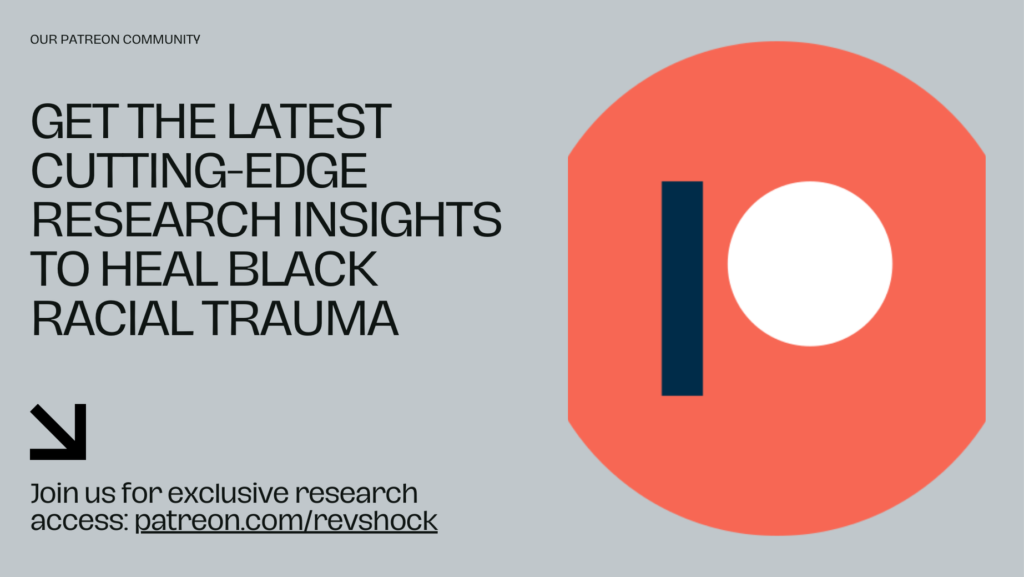
Powered By BlackTraumaGPT.com
Researched and Curated By Rev. Dr. Philippe SHOCK Matthews
(Black Trauma and Mental Health Specialist | Prompt Eng | GPT Dev | Research Scientist | Africana Phenomenologist | Black AI Corsortim co-Founder | Black Mental Health Podcast Host)
As a research scientist studying Africana phenomenology, I am continually struck by how Dr. Na’im Akbar’s 1991 paper “Mental Disorder Among African Americans” remains profoundly relevant to our contemporary discussions of mental health in the Black community. His work represents a crucial intervention in psychology that challenges us to fundamentally rethink how we conceptualize mental health through an African-centered lens.
The Tyranny of “Democratic Sanity”

Akbar’s concept of “democratic sanity” – where normality is defined simply by majority behavior – illuminates how mental health standards have historically functioned as instruments of racial oppression. When the dominant white culture’s behavioral norms are uncritically applied as universal standards, any cultural differences in Black expression, cognition, or coping mechanisms can be pathologized as dysfunction. This “intellectual oppression,” as Akbar termed it, continues to manifest in contemporary mental health care through diagnostic biases and culturally inappropriate treatment models.
What makes Akbar’s analysis so powerful is how it connects individual psychological experiences to broader systems of oppression. Rather than accepting the traditional medical model’s emphasis on individual pathology, he pushes us to examine how racism and oppression themselves generate and sustain mental distress in the Black community.
A Revolutionary Diagnostic Framework
The four categories of mental disorder that Akbar proposed – Alien-Self Disorder, Anti-Self Disorder, Self-Destructive Disorders, and Organic Disorders – offer a sophisticated framework for understanding how systemic racism impacts Black psychological wellbeing. What’s particularly striking from a phenomenological perspective is how these categories center the lived experience of existing as a Black person in an anti-Black society.
The Alien-Self Disorder describes individuals who attempt to escape their Blackness by assimilating into white society while denying the reality of racism. From a phenomenological standpoint, this represents a profound disruption of the authentic self – a kind of double consciousness gone wrong, where the individual tries to fully inhabit the white gaze rather than maintaining a grounded sense of Black identity. The resulting identity confusion and isolation that Akbar describes can be understood as the psychological toll of this attempted self-alienation.
The Anti-Self Disorder represents an even more severe form of colonial mentality, where individuals not only reject their Blackness but actively internalize anti-Black racism. This “colonized mentality” that Akbar identifies helps explain phenomena like internalized racism and horizontal hostility within Black communities. The fact that individuals with this disorder often feel comfortable with their alien identification makes it particularly insidious and difficult to address therapeutically.
Self-Destructive Disorders emerge as direct responses to oppression, manifesting in behaviors like substance abuse, prostitution, and black-on-black crime. Rather than viewing these solely as individual pathologies, Akbar helps us understand them as attempts to cope with the “hostile environment that oppression creates.” This reframing is crucial for developing more effective, trauma-informed interventions that address root causes rather than just symptoms.
Even with Organic Disorders, which have clear biological components, Akbar pushes us to consider how “a disordered and defective environment” may contribute to their development. This ecological perspective anticipates contemporary research on how chronic stress from racism can literally get under the skin to impact physical and mental health.
Contemporary Relevance and Applications
The statistics on mental health disparities in the Black community remain stark – African Americans are 20% more likely to experience serious mental health problems compared to the general population, yet only one in three who need mental health care receives it. These disparities cannot be fully understood or addressed without the kind of structural analysis that Akbar provides.
His work helps explain why traditional mental health services often fail to adequately serve Black communities. When treatment models are based on Eurocentric norms and fail to account for the psychological impacts of racism, they risk perpetuating harm even while trying to help. The fact that only 25% of African Americans seek mental health treatment (compared to 40% of white Americans) reflects not just practical barriers to access, but also justified skepticism of a mental health system that has historically pathologized Black resistance to oppression.
Akbar’s framework suggests several key priorities for improving mental health outcomes in Black communities:
- Developing culturally-grounded definitions of psychological wellbeing that center Black experiences and ways of knowing
- Training mental health providers to understand how racism and oppression impact psychological functioning
- Creating therapeutic approaches that help individuals maintain healthy Black identities while navigating racist societies
- Addressing systemic racism and oppression as fundamental mental health interventions
The Way Forward
What makes Akbar’s work so valuable is that it doesn’t just critique existing frameworks; it offers a positive vision for culturally appropriate mental health care for Black communities. His insistence that “African Americans should create their own definitions of ‘normal’ and ‘abnormal’ that make meaningful use of an African worldview” remains an essential project.
This work of developing African-centered approaches to mental health must happen at multiple levels:
- Theoretical: Further developing frameworks that center Black experiences and ways of knowing
- Clinical: Creating and evaluating therapeutic approaches based on African-centered psychology
- Institutional: Building mental health services and training programs grounded in these approaches
- Political: Addressing systemic racism and oppression as fundamental to mental health
As contemporary mental health practitioners and researchers, we must continue Akbar’s project of decolonizing mental health. This means not just incorporating cultural competency as an add-on to existing approaches, but fundamentally rethinking how we understand psychological wellbeing through an African-centered lens.
The ongoing mental health crisis in Black communities – from trauma and depression to substance abuse and suicide – cannot be adequately addressed through traditional clinical approaches alone. Akbar’s work reminds us that true mental health for Black people requires both healing from the psychological wounds of racism and building the psychological resources to resist ongoing oppression.
Looking Ahead

Over 30 years after its publication, Akbar’s paper continues to offer crucial insights for anyone working to improve mental health outcomes in Black communities. His framework helps us understand both individual psychological experiences and the broader systemic changes needed to promote genuine healing and wellbeing.
As we face ongoing challenges of racism, inequality, and mental health disparities, Akbar’s work points us toward the kind of radical rethinking of mental health that true progress requires. By centering Black experiences and ways of knowing, we can work toward mental health approaches that don’t just treat symptoms but support genuine psychological liberation.
The task ahead is to continue building on Akbar’s foundation, developing theoretical frameworks, clinical approaches, and institutional structures supporting genuine mental health and well-being in Black communities. This work is essential not just for addressing current mental health disparities but also for creating the conditions for true psychological freedom and flourishing.
Dr. Na’i’m Akbar’s Catalog:
- New Visions for Black Men https://amzn.to/49Vf3DG
- Visions for Black Men https://amzn.to/3Dw2DpV
- Know Thyself https://amzn.to/4iUqzmU
- Breaking the Chains of Psychological Slavery https://amzn.to/3VYEcYB
- The Power of We https://amzn.to/3Ph3e1k
- The Community of Self https://amzn.to/3BPdZos
- From Miseducation to Education https://amzn.to/4gPKtO7
- Chains and Images of Psychological Slavery https://amzn.to/3ZYxkLM
- The Unapologetic Guide to Black Mental Health: Navigate an Unequal System, Learn Tools for Emotional Wellness, and Get the Help You Deserve https://amzn.to/3BQCUrz
———————
Brought To You By…
If nothing is wrong with you and something happened to you…are you ready to find out what to do about it? Shock Trauma Spiritual Counseling Discovery Call | BlackTraumaGPT.com: Beginner’s User Guide | Programming chatGPT for Black Self Mental Health, Trauma, and Healing.
May These Words Of Power Inspire You To Greatness!
Nothing Is Wrong With Black People…Something Happened to Black People by The Metaphysical Morpheus
— AVAILABLE ON SPOTIFY, ITUNES & APPLE MUSIC, AMAZON MUSIC and IHEARTRADIO ♫.
———————
“I just completed a brief session with ChatGPT-Black Trauma. Wow! The responses I got were soooooo helpfu!.” — John Jackson (Patreon Member)
At BlackTraumaGPT.com, we aim to foster healing, understanding, and empowerment within Black communities by providing culturally sensitive education, insights, and mental health resources. We aim to deepen the collective awareness of Black trauma’s historical roots and its contemporary manifestations while guiding individuals and communities toward paths of self-care, resilience, and holistic healing. By leveraging the wisdom of Africana phenomenology and the expertise of Black scholars, we support the transformation of trauma into strength, encouraging collective growth and thriving.
IT’S TIME TO BREAK BLACK TRAUMA! Heal Thyself @ BlackTraumaGPT.com http://blacktraumagpt.com/ ASK THE QUESTION(S)!
———————
Get Social with Doc SHOCK:
PATREON | ABOUT DR. SHOCK | FLY SOLO | ACADEMIC BIO | BLOG | BLACK TRAUMA PODCAST | ENDORSEMENT | THREADS | IG | FB PAGE | PRIVATE GROUP | X | LINKEDIN | TIKTOK | PINTEREST | BLACK TRAUMA GPT | BLACK AI CONSORTIUM | BOOKS BY DOC SHOCK


This groundbreaking understanding has far-reaching implications for everyone, and it is particularly significant for Black communities, offering them profound value and recognition. This is an important discovery for everyone, especially for Black people.
Thank you for your comment Sheyla!